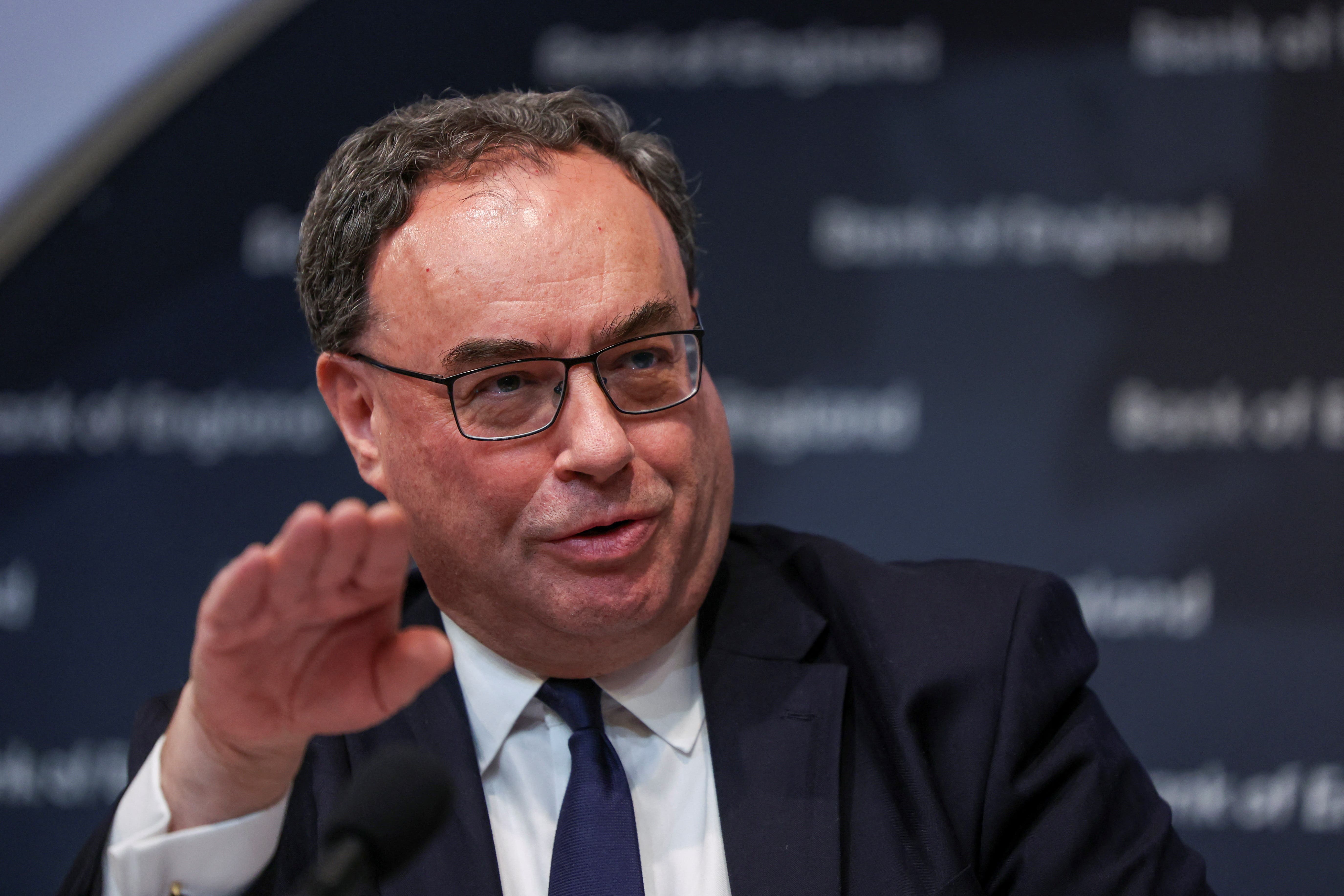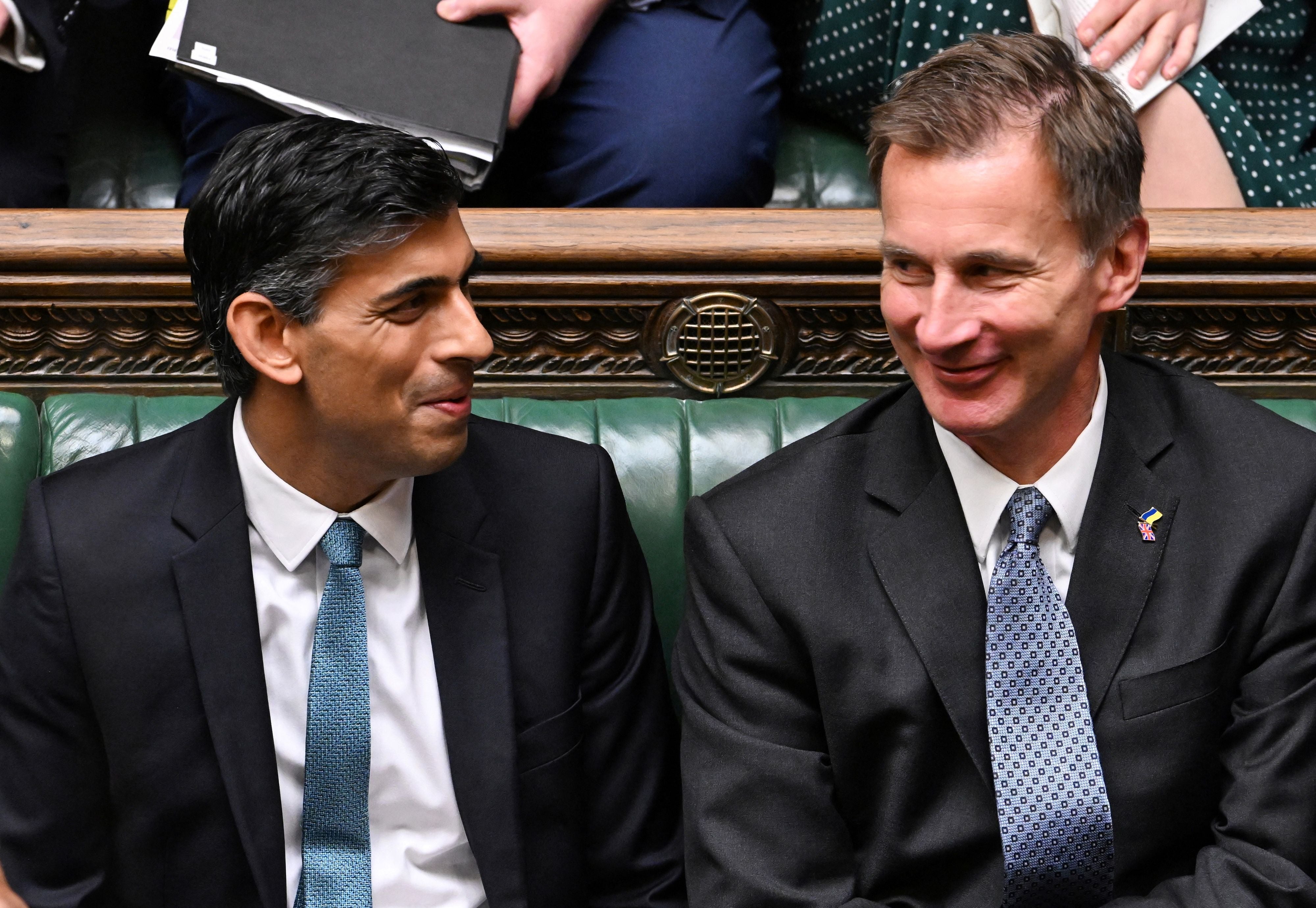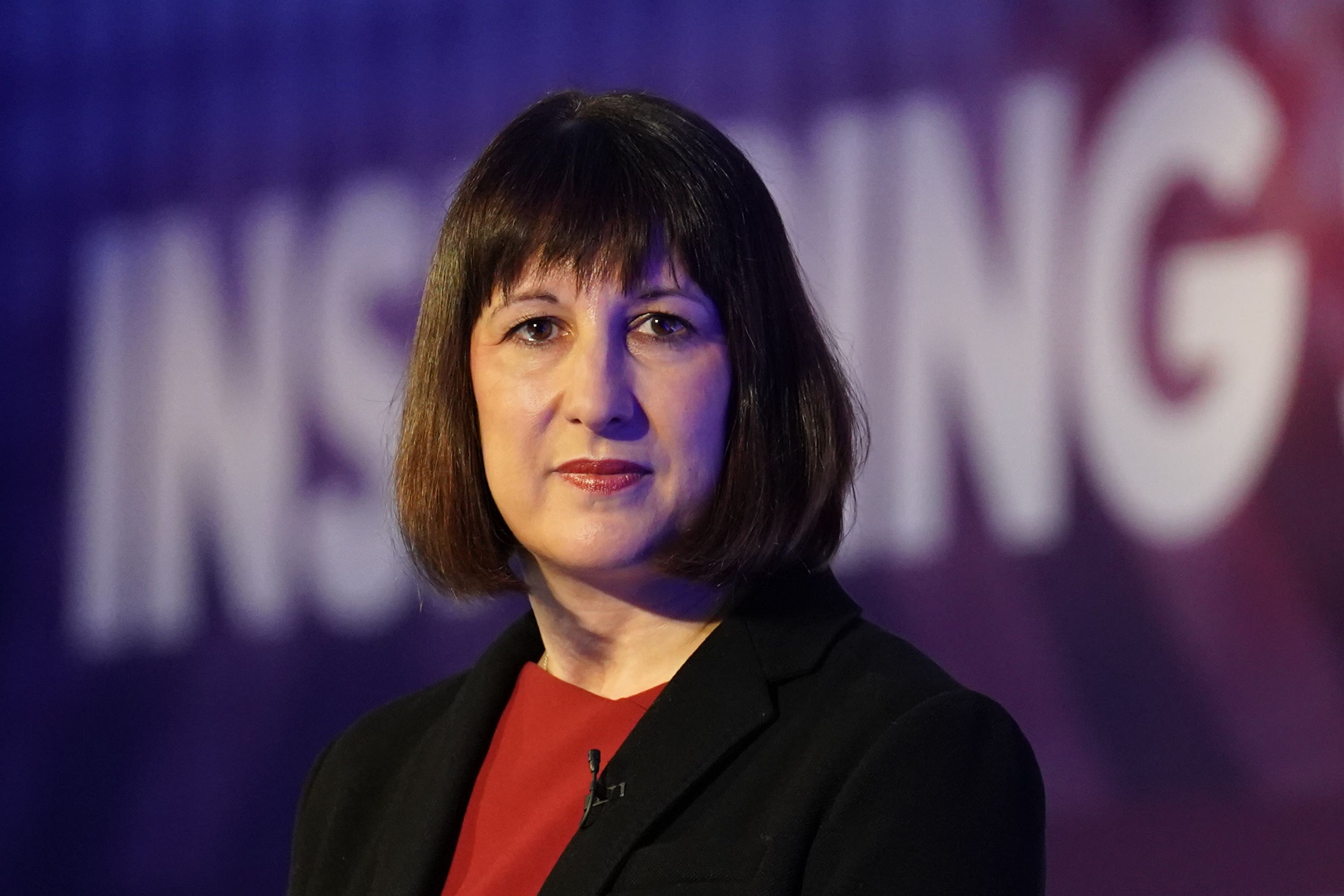Trigger recession to tame inflation, say economists – as Bank set to hike interest rates
‘There’s no other way around it’, says Jeremy Hunt adviser on looming UK recession
Your support helps us to tell the story
From reproductive rights to climate change to Big Tech, The Independent is on the ground when the story is developing. Whether it's investigating the financials of Elon Musk's pro-Trump PAC or producing our latest documentary, 'The A Word', which shines a light on the American women fighting for reproductive rights, we know how important it is to parse out the facts from the messaging.
At such a critical moment in US history, we need reporters on the ground. Your donation allows us to keep sending journalists to speak to both sides of the story.
The Independent is trusted by Americans across the entire political spectrum. And unlike many other quality news outlets, we choose not to lock Americans out of our reporting and analysis with paywalls. We believe quality journalism should be available to everyone, paid for by those who can afford it.
Your support makes all the difference.The Bank of England has no choice but to trigger a recession in order to finally tame inflation, top economists have warned – including one of chancellor Jeremy Hunt’s own advisers.
The central bank is set to increase interest rates for the 13th time in a row today after shock inflation figures showed previous hikes failed to cut persistent price rises.
Some of Mr Hunt’s advisers have attacked the Bank for being too cautious in raising the base rate – saying it was time to accept the inevitability of a recession.
Karen Ward, a member of the chancellor’s economic advisory council, said: “The difficulty for the Bank is that they need to create a recession to create uncertainty and frailty.
She added: “It’s only when companies feel nervous about the future that they think they won’t put through price rises … There’s no other way around it.”
Adam Posen – a former member of the Bank of England’s monetary policy committee (MPC) which sets the base rate – also said a recession was now necessary. “Absent a recession, inflation will not come back sustainably to target,” he said.
Mr Posen accused the Bank of “wishfully talking about inflation declines” after Wednesday’s figures showed inflation frozen at 8.7 per cent.
Sushil Wadhwani, a former MPC member who also sits on Mr Hunt’s economic advisory council, added: “The Bank has tried to be too cute and on frequent occasions when they have raised rates, they have undone the benefits by talking dovishly.”
An increase from 4.5 per cent to 4.75 per cent is most likely when governor Andrew Bailey announces the decision at 12 noon – but a larger hike to 5 per cent is a possibility after the disappointing inflation figure.

The 13th increase in a row will mean further pain for mortgage holders facing spiralling rates, with Rishi Sunak and Mr Hunt under pressure to act to help struggling homeowners.
The prime minister – set to make a speech after the announcement – will say he feels a “deep moral responsibility” to deliver on his pledge to halve inflation, and remains “completely confident” it can still be achieved.
Labour accused Mr Sunak and Mr Hunt of standing by as millions suffer. Keir Starmer’s party said it wanted banks would be forced to help mortgage holders struggling with payments.
The opposition is urging the government to compel lenders to allow borrowers to temporarily switch to interest-only payments, or to lengthen their mortgage period.
Banks would also have to wait at least six months before starting repossession proceedings under a five-point plan set out by shadow chancellor Rachel Reeves on Thursday.
“Instead of squabbling over peerages and parties and ruling out any action on mortgages, the Tories should be taking responsibility and acting now,” said Ms Reeves.
But Ms Reeves has ruled out Labour backing subsidies or direct financial support for mortgage holders. “I recognise the challenge of inflation, and a big fiscal injection of cash into the economy, especially an untargeted injection, would not be the right approach,” she told BBC Radio 4’s Today programme.

Annual mortgage repayments are set to rise by £2,900 for the average household re-mortgaging next year, according to economists at the Resolution Foundation.
The (IFS) said 1.4m homeowners – half of whom are under 40 – will see a fifth of their disposable income wiped out by soaring mortgage rates.
Mr Hunt is set to meet the banks to urge them to offer more support, but the government has rejected calls from Tory backbenchers to bring in mortgage interest rate tax relief, and dismissed a Liberal Democrat plan for £300 a month grants for struggling mortgage holders.
Dismissing such moves as “inflationary”, Mr Hunt said the government would “stick to its guns no matter what the pressure from left, right or centre”.
Former Bank of England rate-setter Andrew Sentance told The Independent there is “great danger” in thinking the government will “step in to solve all known problems”.

Former chancellor Philip Hammond said it was still possible to avoid a recession – if the Sunak government considered relaxing post-Brexit immigration rules to help boost the economy.
“I don’t think the Bank [of England] has got much choice [but to tip the country into recession] unless the government does something pretty significant intervening in the labour market in a different way,” Mr Hammond told LBC.
The ex-chancellor added: ‘I think the government has regarded any relaxation of migration rules as being politically toxic. But rising mortgage rates on the scale we’re seeing is also politically toxic.”
Adding to criticism of the Bank of England, Anna Valero, another member of the Hunt advisory group, said the MPC had previously failed to act decisively enough to hike rates.
But she warned against overcorrecting now, and the current doom-mongering about an “inevitable” recession. “If we push too hard we could push the economy into a recession and then not get the business investment we need. If that happens then ultimately we’re not going to see productivity pick up.”
Charles Goodhart, a former member of the MPC, said Mr Bailey and the Bank chiefs faced a “nasty dilemma” when it meets this morning to decide on the rate rise.
Mr Goodhart said the MPC could “either raise Bank rate by half a per cent and get attacked for mortgages and driving UK into recession, or raise by a quarter of a per cent and lose credibility as an inflation resister, and appear to allow a wage price spiral to strengthen”.
Professor Abhinay Muthoo, an economist and fellow at the National Institute for Economic and Social Research, warned against further interest rate rises.
“Inflation is a problem, but it is under control … We really don’t need to raise rates yet further. There is a risk from doing so of putting the economy into recession, which will hurt deeper.”




Join our commenting forum
Join thought-provoking conversations, follow other Independent readers and see their replies
Comments